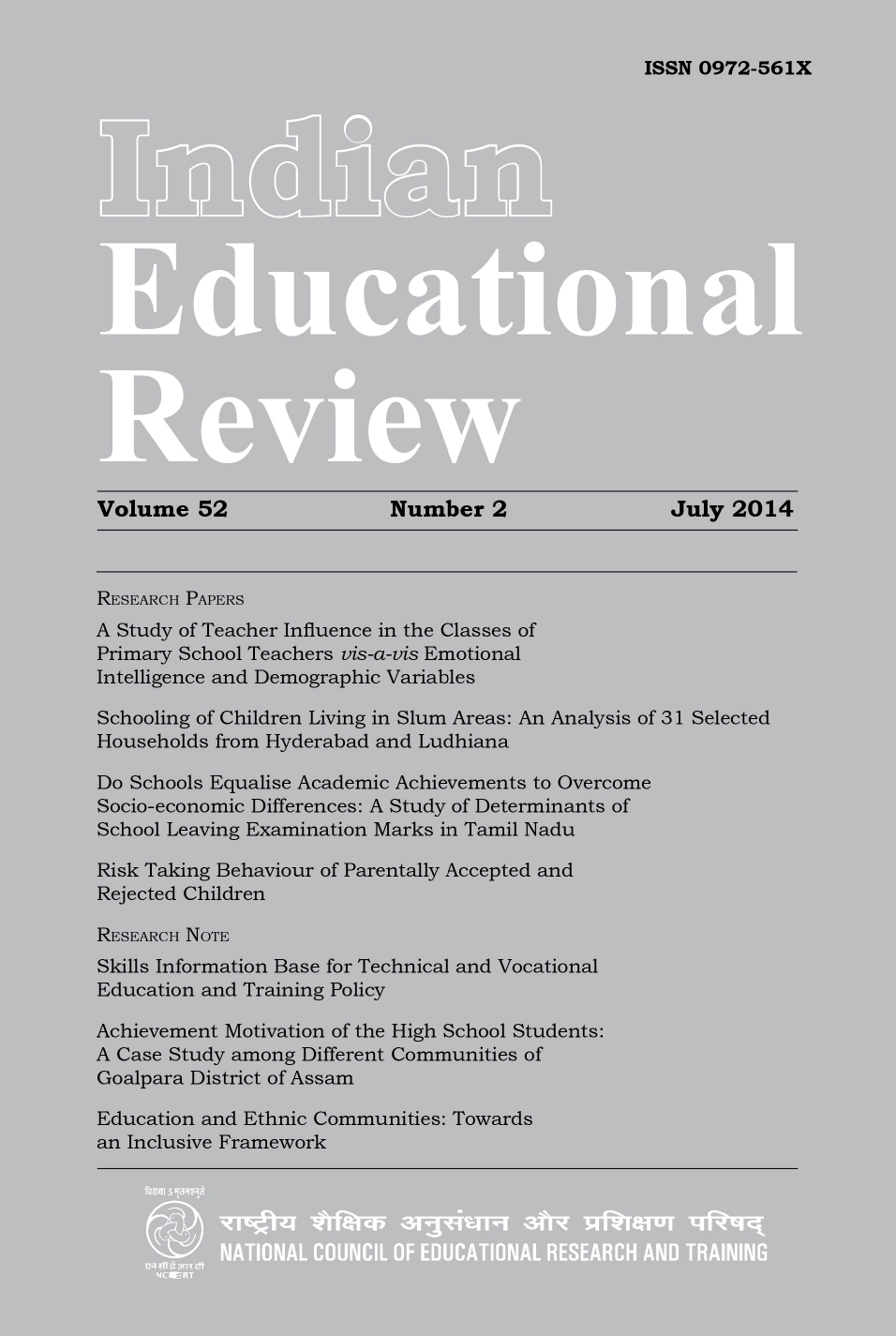Do Schools Equalise Academic Achievements to Overcome Socioeconomic Differences: A Study of Determinants of School Leaving Examination Marks in Tamil Nadu
Published 2024-12-31
Keywords
- School Education,
- Socio-Psychological
How to Cite
Abstract
School education should provide an environment for inclusiveness. Understanding the backwardness of certain communities is as important as appreciating and nurturing intelligence and excellence. This is the surest route to render social justice and to establish an egalitarian society. When education is conceived as a form of human capital, then distribution of this human capital should be equal across society. Rather distribution of human capital should help to overcome the other social and economic backwardness of children in the depressed communities. When society is stratified by communities, so are the schools to cater to different needs of the each stratum of the society. Hence, community, type of schools, location, gender, choice of subjects are inter-related and together determine the creation of human capital as measured by marks. Hence, we attempt at analysing the determinants of marks using data of nearly 3.9 lakh students who successfully completed 10th standard in 2008 and proceeded to complete 12th standard in 2010. With this large data set, we could find a clear trend of students from relatively forward communities, study in self-financing schools and choose subjects that take them to professional courses in higher education, ultimately scoring higher grades than others. On the contrary, the students from the backward and depressed communities, study in government schools, choosing subjects that do not take them to professional education and they also score very low marks. Thus, the existing school system creates further inequality through unequal distribution of human capital.

